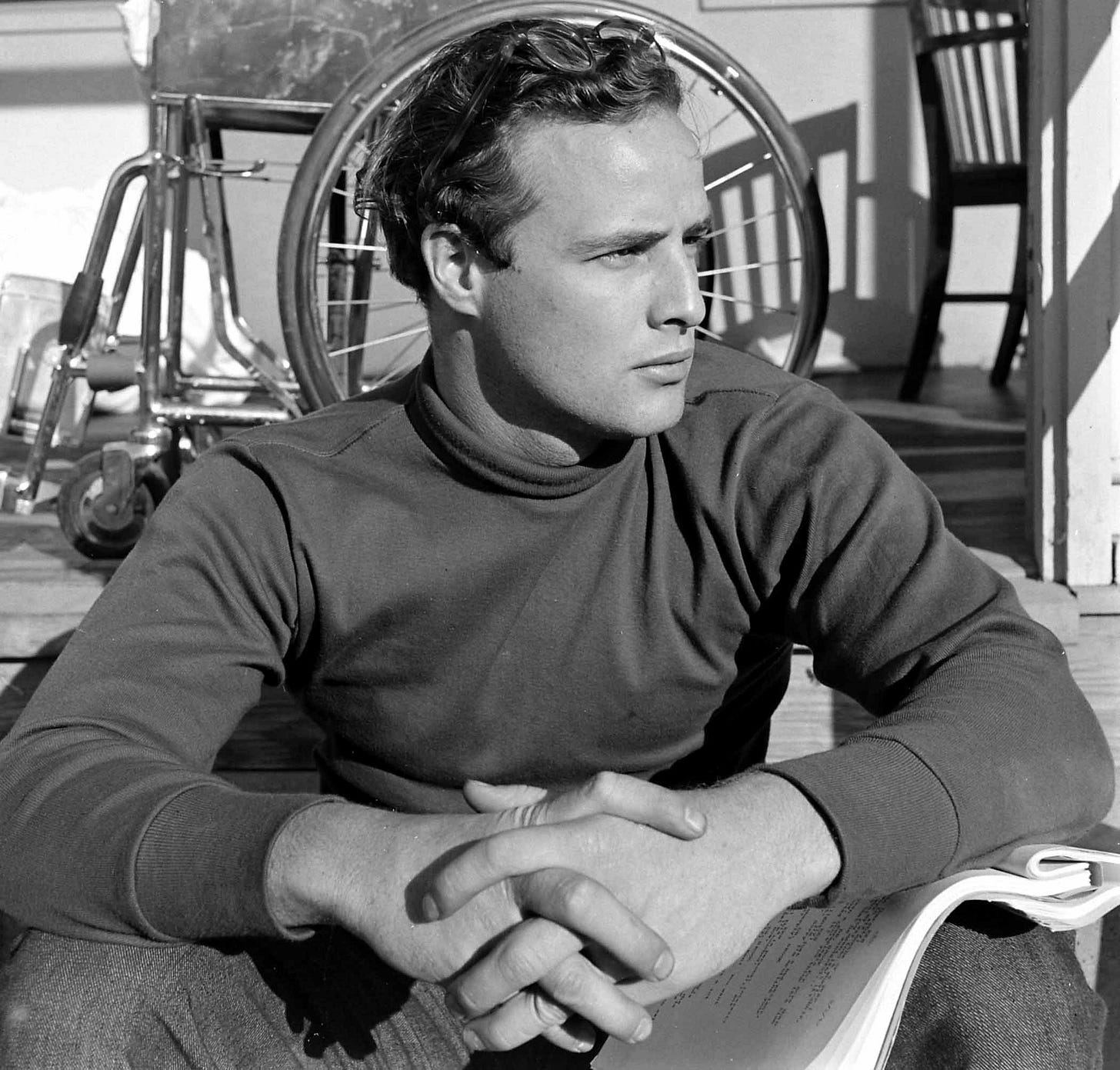Curio #6 - Marlon Brando, Largest Cities in the World & Alex Albrecht
Hi everyone,
Welcome back to another edition of Curio, your weekly break from the noise of the news cycle. If you’re enjoying this newsletter, then I just have one ask of you: please forward it to two friends who you think might also like it. I’d love to keep growing this community of curious minds. They can sign up below:
Have a great weekend!
Oli
Marlon Brando through the eyes of Truman Capote
In 1957, Truman Capote traveled to Kyoto to interview one of the biggest movie stars in the world at the time, Marlon Brando.

Capote was also entering the prime of this career, as Breakfast at Tiffany’s was released the following year. In Kyoto, Brando was in the middle of filming Sayonara, a critically acclaimed motion picture about an American Air Force pilot who falls in love with a famous Japanese dancer.

The article Capote produced after this interview for the New Yorker is a masterclass of the long form profile piece. He manages to draw out so many intimate details that provide such a deep understanding of the famous actor’s strengths, flaws and insecurities. You learn about Brando’s:
Background and upbringing:
Born in Omaha, Nebaskra, where his father was a salesman of limestone products, Brando, the family’s third child and only son, was soon taken to live in Libertyville, Illinois. There the Brandos settled down in a rambling house in a countrified neighborhood; at least, there was enough country around the house to allow the Brandos to keep geese and hens and rabbits, a horse, a Great Dane, twenty-eight cats, and a cow. Milking the cow was the daily chore that belonged to Bud, as Marlon was then nicknamed....
Bud...had inherited his mother’s theatrical inclinations, but at seventeen he announced a wish to study for the ministry. (Then, as now, Brando searched for a belief. As one Brando disciple once summed it up, “He needs to find something in life, something in himself, that is permanently true, and he needs to lay down his life for it. For such an intense personality, nothing less than that will do.”) Talked out of his clerical ambitions, expelled from school, rejected for military service in 1942 because of a trick knee, Brando packed up and came to New York. Whereupon Bud, the plump, towheaded, unhappy adolescent, exits, and the man-sized and very gifted Marlon emerges.
Beginnings in New York:
Before Brando achieve this sugary perch, he has known the vicissitudes of any unconnected, unfinanced, only partly educated (he has never received a high-school diploma, having been expelled before graduation from Shattuck Military Academy, in Faribault, Minnesota, an institution he refers to as ‘the asylum’) young man who arrives in New York from more rural parts... Living alone in furnished rooms, or sharing underfurnished apartments, he had spent his first city years fluctuating between acting classes and a fly-by-night enrollment in Social Security; Best’s once had him on its payroll as an elevator boy.
Book’s on his bedside table:
Colin Wilson’s ‘The Outside’ and various works on Buddhist prayer, Zen meditation, Yogi breathing and Hindu mysticism, but no fiction
Relationship with the other actors on set:
...by and large was not socially available, preferring, during the tedious lulls between scenes, to sit alone reading philosophy or scribbling in a schoolboy notebook
Way of speaking:
The voice went on, as though speaking to hear itself, an effect Brando’s speech often has, for, like many persons who are intensely self-absorbed, he is something of a monologuist — a fact that he recognizes and for which he offers his own explanation. “People around me never say anything,” he says. “They just seem to want to hear what I have to say. That’s why I do all the talking.”
Thoughts on success:
“I’ve seriously considered — I’ve very seriously thought about — throwing the whole thing up. This business of being a successful actor. What’s the point, if it doesn’t evolve into anything? All right, you’re a success. At last you’re accepted, you’re welcome anywhere. But that’s it, that’s all there is to it, it doesn’t lead anywhere. You’re just sitting on a pile of candy gathering thick lawyers of — of crust.” He rubbed his chin with the towel, as though removing stale makeup. “Too much success can ruin you as surely as too much failure.”
His attitude to love:
“What other reason is there for living? Except love? That has been my main trouble. My inability to love anyone.”
Other revealing insights include Brando’s thoughts on friendship, how he works a room and his feelings on the recently deceased James Dean.
You can read the full article here.
Largest Cities in the World
This fascinating bar chart race shows the population of the largest metropolitan areas in the world from 1500 - 2018. Every time I watch it, I notice something new. For instance:
The sudden disappearance of Vijayanagara in 1565 (due to the Battle of Talikota)
The absence of any cities in Europe after the 1980s
Beijing, the most populated city in the world during most of the 1700s, drops out of the list in 1901 to then reemerge in 2009
Alex Albrecht
Last year, Melbourne producer Alex Albrecht released an EP entitled The Bluff, containing four delicate ambient tracks. The first song, Hunted, incorporates sounds of the Australian bush in a way that makes me feel homesick. I find Albrecht’s atmospheric, free-flowing music so intriguing and so exquisite.
If you liked this, then share the love by sending it to two friends :)



